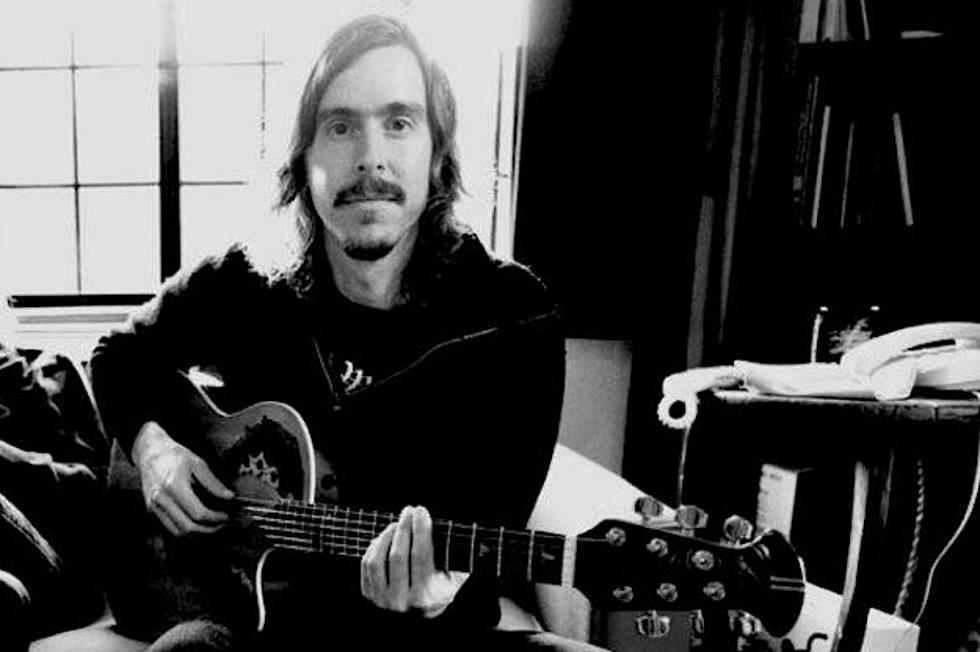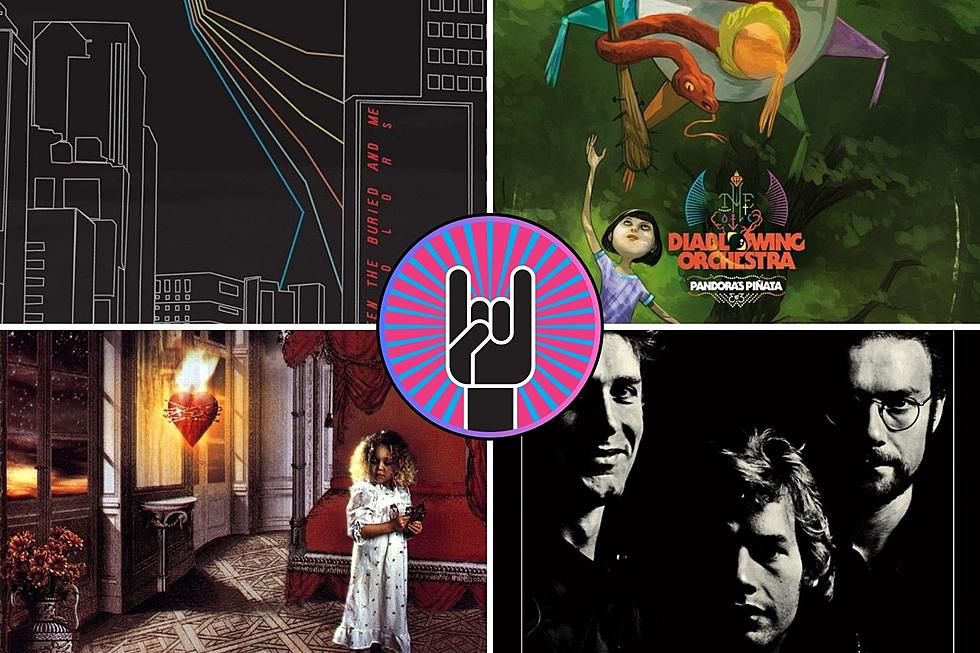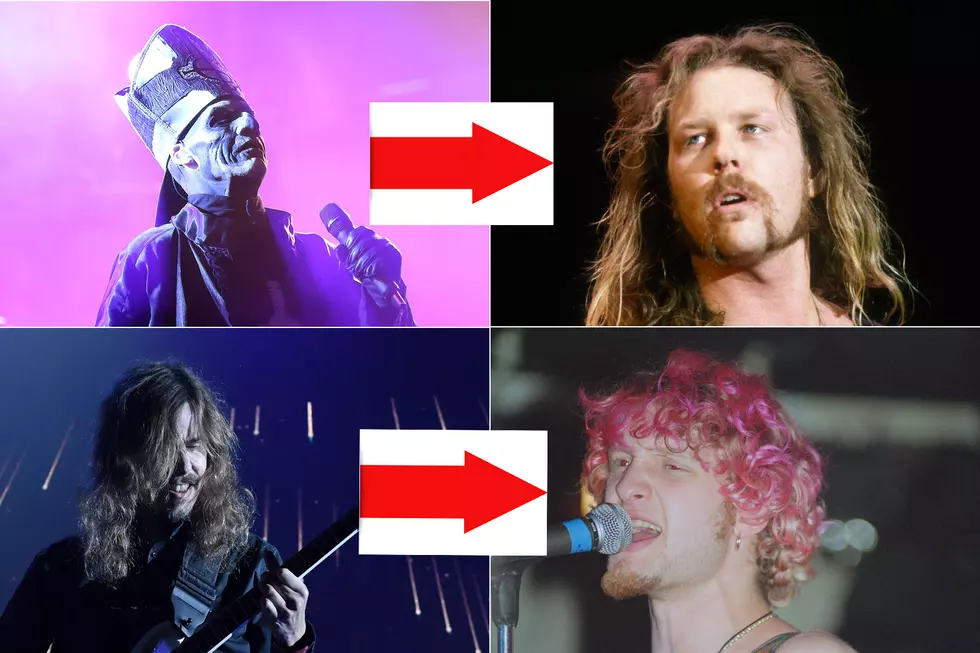
Mikael Akerfeldt Discusses Evolution of Opeth, New Project Storm Corrosion + More
We recently caught up with Swedish progressive metal master Mikael Akerfeldt of Opeth. Hours before the band's recent New York City gig with Mastodon, Akerfeldt spoke with us about his decision to veer away from death metal both stylistically and vocally, his new project Storm Corrosion with Porcupine Tree frontman Steven Wilson and much more.
Akerfeldt revealed to us during this interview that he was no longer a member of death metal outfit Bloodbath, while also talking about focusing on the enhancement of his clean singing rather than his demonic and Earth-shaking gutturals -- a widely discussed topic among Opeth fans. Check out our full interview with Akerfeldt below:
A little while ago you said that basically anyone can like Opeth, and this is a very diverse tour with Ghost and Mastodon. Have the crowds been proving that really anyone can like Opeth?
Well, most of them seem to like us. Not just this tour -- gradually since we started touring a lot, there has been more of a diverse crowd coming. Especially with this last record ['Heritage'], there's a lot of people -- I can't say that they haven't seen us before. It just seems like a lot of people have gotten into this band in the later years and with the last record. Some people I can even see singing along to the new songs and when we break into a heavier old song, they're like, "Hmmmm," and start wondering off. [Laughs] Now we have all sorts of people there, all sorts of ages. We have lots of women coming, which you can't complain about. Just a diverse crowd. "Anyone" is maybe farfetched, I don't think we go down into the hip-hop community. I think once you have a diverse taste in music, I think anyone could like it.
I recently had the chance to hear the new Storm Corrosion disc and I think it's such a beautiful album. You're working with Steve Wilson (Porcupine Tree), who is one of your idols in a sense. You can hear elements of Opeth and Porcupine Tree, but it's not too much to either side. It feels like you guys met right in the middle to create something very new.
Yeah, we never tried to do something that sounded like a mix. I think we tried to avoid that actually. For us to make a rock record, I think it would have been easier for us to fall into that frame of mind. All of a sudden we're doing something that sounds exactly like a mix between our respective bands, but that's not really interesting -- not to me anyways. So we more or less tried to avoid that. We kind of gravitated towards those types of bands and those types of influences that we have never been able to use too much in our other bands, which made it sound a bit different. I like to think that it's hard to categorize this record. It's not a rock record, but it has some influences from rock music. I like to think it's fairly new sounding.
You guys were originally going to have Mike Portnoy play drums on the album, but then it turns out that the album doesn't have any drums on it. How did you come to that conclusion?
Well, the first song we wrote was 'Drag Ropes.' We tried to put some drums in there but it just didn't sound right. The lack of drums actually did help with us coming up with this type of music. The lack of drums made it become more of a unique type of record. Normally I think both myself and Steve think drums in everything that we do -- that's the backbone of the songs. But it was kind of liberating in a way to remove an instrument and just concentrate on the other stuff. We could have still had Mike come in and play drums, but I think Mike is such a driven guy. I don't think he would have liked to participate in the end, because anyone can play the ride cymbal. So it's kind of contradictory to being a drummer like Mike Portnoy to just play the hi-hat, you know. There are some drums on there, but it's only an effect.
A lot of bands do guttural vocals mixed with singing, but you have a very unique way of mixing the two. Who are your main vocal influences?
When it comes to screaming, there's only one guy I really like and that's David Vincent [of Morbid Angel]. I like that type of tone. He had a very throaty type of tone, a deep voice. He could also do the high-pitched like he did on 'Alters of Madness.' He's my favorite and as far as I'm concerned he's the best. There is no one who is better than him. I liked Chuck [Schuldiner] (Death) when he was around. I like L.G. from Entombed, Chris from Autopsy; I even like John Tardy from Obituary.
Yeah, you can't really say that John Tardy sounds like anyone else.
He's weird. He's definitely got his own style. You can only take that type of vocal [so far]. Nothing really happened with that type of vocal in 20 years. It's always been the same. For me and my screams; I sang more high-pitched when I was younger, so I've been singing more low-pitched [recently] and now I do some mid-ranged, kind of, "Ahhhhh!" [Laughs] But I definitely haven't got the passion to scream as much as I did before. That was my vocal style back in the day; more screams than clean singing. Now it's the other way around. There was some gutturals on 'Watershed,' but it was still much more clean vocals than on any previous record apart from 'Damnation.'
I've just been gravitating towards singing because I enjoy it more. I can feel how I develop as a singer. With death metal, I haven't really felt like I developed at all. On the contrary, I feel like I can't do the stuff I could do when I was younger. I haven't listened to death metal for such a long time. I don't put on the new death metal records coming out. I stopped listening to it around the time when we did the first record, which is a long time ago. I'm just not so interested anymore. I do some of these songs -- maybe I don't do it as good… some nights I'm better, but I do them to please the fans. Some of the other songs I hope will please the fans, but I do them more too because I think we sound good playing those songs.
Is it safe to say that, thinking of 'Heritage,' you've been listening to a lot more old-school prog-rock lately?
Well, that's not a result of what I've been listening to recently. That type of music I've been listening to since … forever now it feels like. That type of music is the reason we did the first record and why it sounds the way it does and why every record since sounds the way it does. It just kind of makes sense to me now that I feel like I reached a point in my songwriting where I didn't want to and I didn't find it interesting. I couldn't really deliver songs in the same style as what we did on 'Watershed,' and I was like, "Okay, now's the time for a change." What we're going to do from now-on? I don't know, but right now this is what we're doing and I felt that we built up that type of crowd that has somewhat of a diverse taste in music and they could accept a record like that, but at the end of the day, it didn't matter because this is what we want to do and if we lose our career or if we become a really big band now, I'm indifferent to it. Opeth has always been a band that we write music that we want to listen to as opposed to catering to our career. I like that we have a career and that this is our jobs, but not at the expense of our integrity and our creativity.
Opeth are currently blazing through North America with Mastodon and Ghost. Check out our review of their New York City show here.
More From Loudwire









